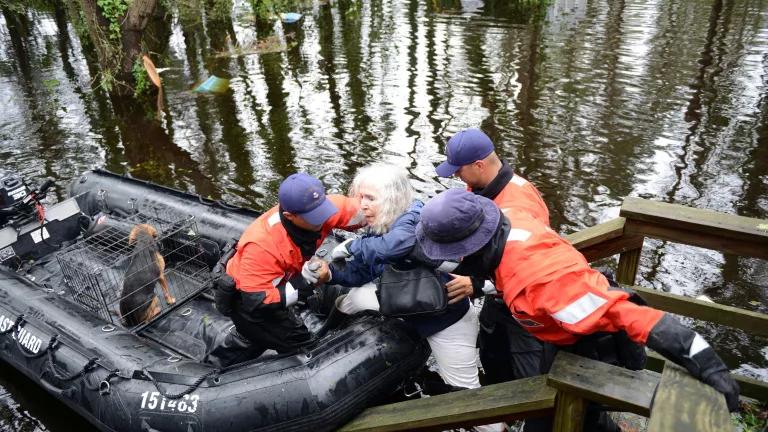Jimmy Strickland runs a small business a few blocks from the waterfront in Norfolk, Virginia. Over the past 10 years, three powerful storms have hit Norfolk, and after each one, Strickland had to close his office for two months of repairs and send $250,000 in bills to his insurance company. “You lose time, and time is money,” Strickland said.
USA Today featured Strickland’s story, along with many other examples of how climate change is already altering the lives of Americans. The piece, called “Why You Should Sweat Climate Change,” painted a vivid picture of damaged property, costly repair bills, and compromised health.
It confirmed once again that climate change threatens not only polar bears or distant ice fields, but our families and communities right here at home.
I just returned from visiting my father in Florida, where several people told me they already see higher tides and more water coming over sea walls. Rising seas are backing up storm sewers in Miami Beach and flooding city streets at high tide.
Millions of people live along Florida’s coastline, and these encroaching seas pose a serious danger. If the water rises by one foot, three of four hospitals, 65 percent of schools, and 71 percent of emergency shelters in Monroe County would be below sea level. State officials recently said that a one-foot rise in sea levels would put $4 billion of property values at risk in Monroe, Broward, and Palm Beach Counties. These are people’s homes, their nest eggs. If they get swamped by rising tides, the damage will be devastating.
If some regions are suffering from too much water, many are struggling with its absence.
Barbara Roberts recently lost her job at a Cargill beef-processing plant in Plainview, Texas. She told USA Today she had worked there for 36 years until the plant closed in January. The prolonged drought pushed many ranchers to thin their herds, and now Cargill doesn’t have enough beef to process. “The U.S. cattle herd is at its lowest level since 1952,” said Cargill Beef’s President John Keating. “Unfortunately, the drought has not broken.” When Cargill shuttered its Plainview plant, 2,000 workers lost their jobs.
The bills from the drought—and the flooding and superstorms—are piling up. Last year, America was hit by 11 natural disasters that cost more than $1 billion in losses each. Munich Re recently confirmed the spike in extreme weather damage: more than 90 percent of the world’s insured weather disaster costs in 2012 occurred in the United States
Behind each dollar lost and insurance claim filed is a person like Barbara Roberts or Jimmy Strickland—someone whose life has been upended by extreme weather. It’s time to listen to their stories and prevent more people from suffering a similar fate.
We can start by urging President Obama to use the tools at his disposal to confront climate change. Just last month, NRDC experts unveiled a flexible, cost-effective proposal for how the Environmental Protection Agency could use the Clean Air Act to cut carbon pollution from existing power plants—the nation’s largest source of climate-changing pollution. This plan would cut carbon pollution from power plants 26 percent by 2020. It would also generate an estimated $25 billion to $60 billion in annual health and climate benefits.
This is the kind of concrete action we can take to help protect our communities from the ravages of extreme weather. Click here to tell President Obama limit carbon pollution from power plants now.



